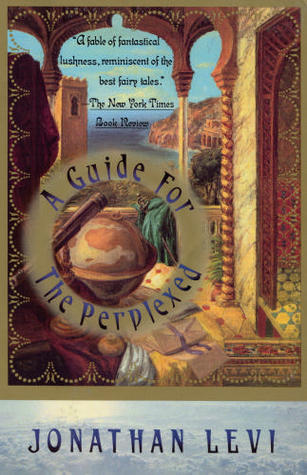This was not a "fun" book to read. It was extraordinarily complicated and weird. The title replicates the title of a book in the book, a travel guide purportedly written by a travel agent used by two women who are stranded in a tiny Spanish airport when the entire airport staff goes on strike. But that's just the first 30 pages or so.
The book is really about violin music (the kind that comes from the soul, not from learning), the Expulsion of Spanish Jews in 1492, Columbus, the Moors in Spain, Maimonides, World War II, travel and movement as metaphor for life. Oh, and the origin of baseball. Did I mention Led Zeppelin and flamenco music? Yes, and just about anything else you'd like to toss into this crazy salad of music and history and biography.
It made me crazy to read this, but I had to finish it to find out where we were going. It helps to know history. It helps to know a bit of Torah/Talmud. It helps to be patient. And it helps to understand metaphor.
My favorite imagery is the concept that if one stops moving, one stops living. "Moving" in this instance is the same as travelling. Not in the sense of tourism, but in the sense of taking in what is around you in your life and making it part of your core, the good and the not-so-good, so that the movement changes you to your very deepest, and also your most superficial, level.
I should read it again. There's a lot in there.

